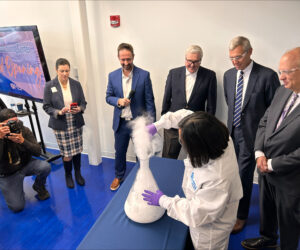What is the primary source of financing for small businesses? This question-among many others-was a central point of inquiry of the Small Business Credit Survey, a collaboration among the Federal Reserve Banks of Atlanta, Boston, Cleveland, New York, Philadelphia, Richmond, and St. Louis.
The Worcester Regional Chamber of Commerce participated in helping to collect data by send the survey to our members. Thanks to all who took the time to complete the survey and provide valuable information about our region to the Fed.
The overall aim was to better understand the business conditions, credit needs, and borrowing experiences of small businesses. As key drivers of job creation and economic development, small businesses’ interest in and ability to access credit are not only important markers of their activities but also of the overall health of the nation’s economy. Leveraging insights from the 2014 survey, the new study does a refreshed analysis of small firms that employee 500 or less employees, with additional focus on microbusinesses (<$100K in revenue), start-ups (0-2 years old), and growth companies (those that increased revenues and employees in the last 12 months and plan to increase or maintain the number of employees).
With responses from 3,459 firms across 26 states, the survey presents findings across a diverse set of employer firms.
Key findings include:
• 63% of responding small businesses hold debt: Most debt is small (<100K) and secured with personal assets.
• Small banks have higher loan approval rates: Traditional bank lending continues to be the primary source of financing for small businesses. Employer firms applying for loans were most successful-and most satisfied with their borrowing experience-at small banks.
• About 20 percent of small businesses apply for credit from online lenders, but they aren’t entirely satisfied with the terms: The rates are even higher for microfirms with revenue less than $100K. While the approval rate was relatively high for borrowing firms (71 percent received at least some credit), approved firms were not very satisfied with their experiences.
Want to know more? Follow the conversation about small business credit using the hashtag #SmallBizCredit on Twitter.
NOTE: Data specific to the Central Mass region will be provided by the Federal Reserve Bank as soon as it is analyzed.
About the Survey
The Small Business Credit Survey questions firms about their business performance, financing needs and choices, and borrowing experiences. The survey captures the perspectives of businesses with fewer than 500 employees.
The SBCS is not a random sample; therefore results should not be interpreted as a statistical representation of small businesses in the coverage area or the nation. Rather, the results should be viewed as suggestive and analyzed with awareness of potential methodological biases.





